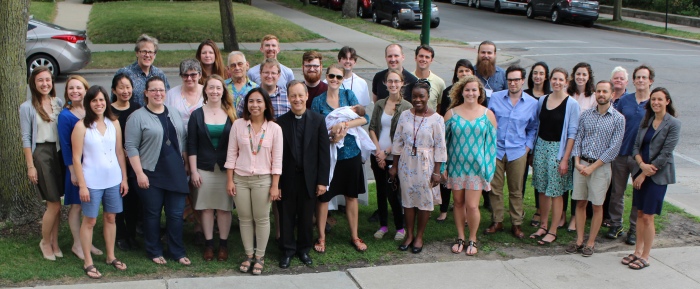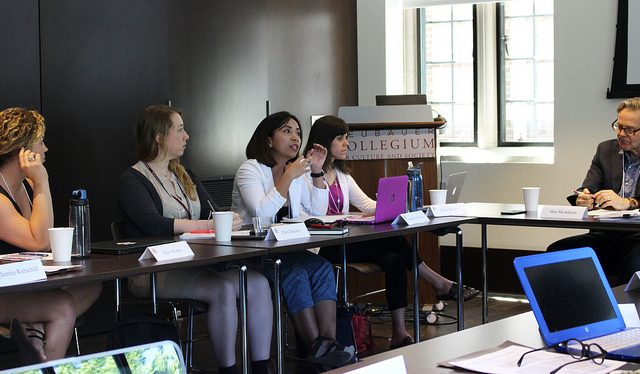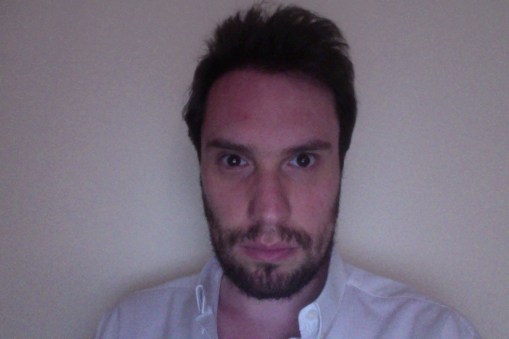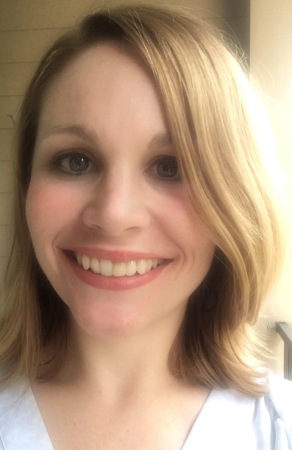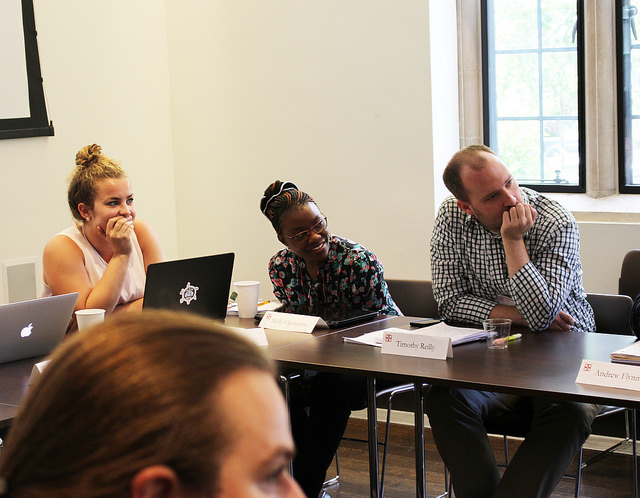
When I sent in my application to be a part of the Virtue, Happiness, & the Self-Transcendence seminar, I was certain that I would benefit from participating but I was not quite sure how much. Now, after the experience, I am really glad that I was part of it. I found it intellectually stimulating and very helpful. I learnt a lot from everyone. The keynote speakers and other participants were ready to discuss my research topics and the discussions that I had with them gave insights for developing my work both as a lecturer and as an early career researcher. For example, Professor Candace Vogler gave me wonderful suggestions for improving my teaching, and I have been able to apply some of them in my classes in Lagos. In addition, the discussions in the sessions helped me to gain a deeper understanding of the topics of virtue and happiness. I learnt a lot from the interactions between the scholars. Those discussions I had with everyone made me want to study more and understand these topics better.
After the seminar, I came up with questions I emailed to the scholars I met in the seminar. I have been pondering over the themes of the discussions since the summer ended, and some more questions come up in my mind when I reflect on my experience from the seminar. The seminar reinforced my interest in interdisciplinary research work and the discussions and the subsequent emails from the participants, (e.g. Dan P McAdams, Timothy Reilly) gave me ideas for future directions in my research.
One of such questions was about the evolution and development of the self and how to interpret and integrate information, research results and ideas from psychology and the humanities while trying to understand human life. The discussion that I had with Tim and Maureen during the seminar and the emails afterwards, were really helpful. They suggested looking at the topic from the perspective of developmental psychology, while seeking themes that may be congruent with philosophical frameworks of the good life. I would like to explore these topics in future research.
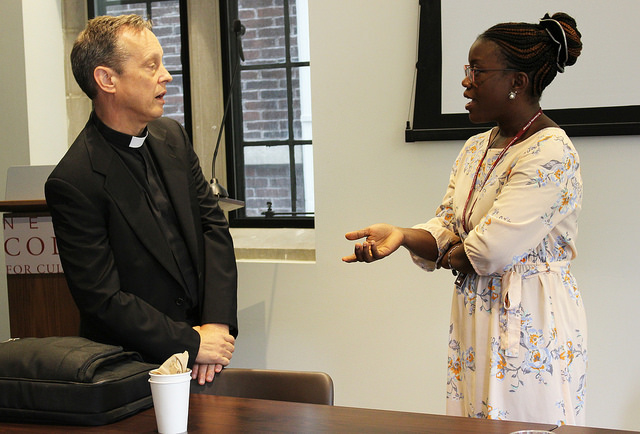
What was the best part of the experience?
I think that the best part of the experience for me was being able to reflect about a topic that the participants and keynote speakers had explored from different perspectives. The scholars from the different fields gave a deeper understanding of the same topics in different lights, and I found it very interesting to see some of the different perspectives and views across fields and to see their commonalities identifiable from the discussions. Oftentimes, scholars from different fields use the same words to describe concepts that are similar and one can think that different fields are referring to the same concepts and content. However, the use of the same terminology may carry different connotations or meanings. Even while studying a concept within the same field, the depth of the meaning attributed to a specific concept may differ significantly. For example, I discovered that narrative psychologist’s concept of virtue is understood quite differently from what I thought I understood from my personal study of psychology. I discovered that the relationship between virtue and the ultimate good for human beings which is clear within classical Aristotelian philosophy ought not to be imposed on psychology’s notion of virtues. Even though both fields use the same words for similar concepts of habits which foster human flourishing and wellbeing, the Aristotelian concept of virtue is tightly linked to the ultimate good of the person found with the best use of his highest faculties, while this link is not so clear with psychology. Therefore one would need to be more attentive to such details when comparing results of studies from these two fields. Being able to speak and exchange ideas with scholars whose works that I had studied helped me to clarify my doubts about what I had understood from personal study.
What did you learn that you didn’t know before?
One of the many things I gained is a deeper understanding of Immanuel Kant’s anthropology and a moral philosophy. The concept of the highest good in Kant’s moral philosophy is a topic which was relatively new to me and I gained a lot from discussions on that topic. The discussions on Aristotelian concept of philia, identification and identity also gave me deeper understanding of friendship.
Additionally, I spoke with Dan P Mc Adams, whose work I had studied for my PhD thesis and to understand his thought better. After the seminar, he sent me an email explaining some points in the evolution of his thought to me which I had not known before. For example, he noted that the original idea in his early work on narrative psychology presents the role of narratives in the heroic quest to make grand meaning. Now, one discovers that narratives are one among many other tools for that quest.

How did the interdisciplinary nature of the seminar open new possibilities for your research?
My PhD thesis had an interdisciplinary approach and meeting people who work with an approach similar to mine helped to discover points of dialogue.
I am currently thinking of a research project on virtues and values in education in Nigeria and I hope to engage some of the scholars whom I met at the seminar. I am still in the idea stage. Additionally, I think that some of the projects which the participants were working on can be replicated in my country. I expect that applications of the discoveries from such projects will foster human flourishing, virtue and happiness in my context. It is true that the methods, the specifics of such investigations and the findings in my country may differ from those in other contexts. However, I think there will be significant proportions of commonalities in the general framework for such investigations and findings and it would be interesting to discover points of confluence that cut across cultures. For example, even though the specific manifestations and applied nomenclature of some of the cardinal virtues may be different in different cultures, one may be able to find that there is some essential concept which stems from each virtue that is common to all.
On the whole, I am quite happy that I participated in the seminar as I am sure it has contributed to my development. I believe that it is the beginning of intellectual dialogue and mutually enriching interactions.

Omowumi Ogunyemi obtained her first degree in medicine and surgery. She has worked as a medical practitioner in various hospitals in Nigeria including The Federal Neuro-Psychiatric Hospital, Lagos, where she co-managed patients with substance-induced disorders. She holds a licentiate degree and a doctorate in philosophy (Anthropology and Ethics) from the Pontifical University of the Holy Cross, Rome. Currently, she lectures in the Institute of Humanities of the Pan-Atlantic University, Lagos, Nigeria. “Molly” Ogunyemi was a participant with the 2017 Summer Seminar, Virtue, Happiness, & Self-Transcendence.
